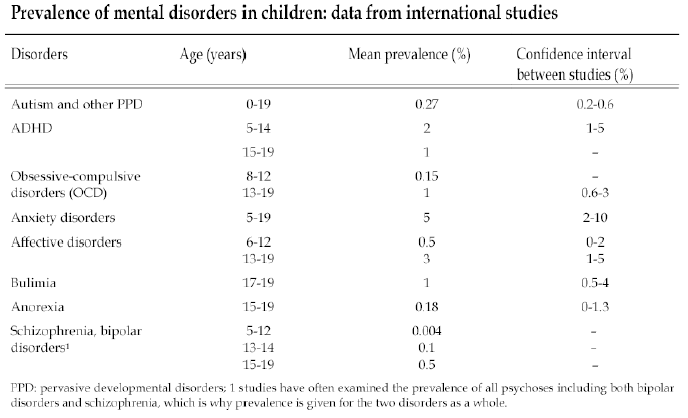Addictions Special Problem Groups
Psychiatric Comorbidity & Pregnancy
Psychiatric States, Drugs & Comorbidities
Basic Olicognograph: Standard Psychosis
The (US) Substance Abuse and Mental Health Services Administration (SAMHSA), and The National Institute of Mental Health (NIMH) offer the following set of evidence-based practices for adults with mental illness and co-occurring disorders.1) Illness Management and Recovery - Wellness self-management encompasses a number of strategies designed to help consumers manage their symptoms. Psycho-education, social skills training, cognitive behavioral therapy, and coping skills training have been shown to help consumers manage their own mental health, reduce symptoms and relapses, and minimize the adverse effects of psychiatric illness on social and role functioning. 2) Medication Management – The elements of an effective program to optimize the use of medications include: (1) a systematic evidence-based approach to medication selection and use; (2) measurement of treatment response and side effects; and (3) efforts to enhance patient adherence to taking prescribed medications.

3) Assertive Community Treatment (ACT), Intensive Case Management (ICM) Important features of ACT and Intensive case management include the following: a small case load, provision of services in consumers’ natural living settings, a 24-hour responsibility, and coordination of comprehensive multi-disciplinary services through regular treatment team meetings. 4) Family Psycho-education – Effective family intervention programs provide a combination of education, problem solving, crisis intervention, and support. Family psycho-education has been shown to reduce relapse rates and facilitate recovery of persons who have mental illness and/or co-morbid disorders. (5) Supported Employment – The supported employment model of vocational rehabilitation includes: rapid job searches and placement in competitive employment, on-going followalong supports after placement, integration of vocational and clinical services, and placing consumers in jobs that match their preferences. Supported employment approaches have been proven to help consumers secure and maintain meaningful jobs in the community. (6) Integrated Treatment for Co-Occurring Substance Use and Mental Health Disorders – Substance use treatment that is integrated with mental health treatment and tailored for individuals with mental illness is more effective than separate substance use and mental health services. Effective models also integrate other services such as case management, medications, housing, vocational rehabilitation, and family intervention. (7) Trauma Services - There is a growing body of evidence that early intervention following traumatic incidents can avoid a variety of behavioral disorders. Effective treatment following traumatic events should include individualized counseling taking an historical account of both current and past trauma and providing psycho-educational information about trauma phenomenon. Effective treatment will include concurrent treatment of trauma issues and co-morbid issues including substance abuse when appropriate.
Pregnancy and Drugs Abuse
Generally, women with substance use problems have fewer resources (education, employment, income) than men and are more likely to be living with a partner with a substance use problem, have care of dependent children and have more severe problems at the beginning of treatment. Women with substance use problems also have higher rates than men of trauma related to physical and sexual abuse and concurrent psychiatric disorders, particularly post-traumatic stress disorder and other mood and anxiety disorders. Available information indicates that women are underrepresented in treatment.
In many societies, problems of substance use and women’s use of substances are heavily stigmatized and cultural norms may make it difficult for women to acknowledge such a problem or leave their homes and families to have treatment. Psychosocial treatment for women needs to address affective, cognitive and behavioural dimensions, including coping skills, relapse prevention, relational work, trauma and other concurrent mental-health problems. Attention to practical issues such as medical care, employment, food, clothing and transportation is also necessary.
Engaging and retaining pregnant and parenting women in treatment requires collaboration between the substance abuse treatment sectors of prenatal care and child welfare. Appropriate interventions for pregnant and parenting women can reduce substance use and improve outcomes for pregnant women and increase treatment retention for women who retain custody of their children and/or have their children with them in treatment. Ideally, services should be accessed through a single site. Alcohol should be withdrawn, tobacco and other drugs too as far as possible but opioid which is safer to substitute. Toxics assessment is according embryogenic calendar.
Opioid substitution treatment, particularly methadone maintenance, has received extensive support as reducing the use of illicit substances and associated problems and increasing life functioning for opioid dependent individuals. It is the treatment of choice for opioid-dependent pregnant women. However, opioid substitution treatment should not stand alone, but rather be complemented by other services that address women’s needs. Pregnant, substance-using women often have multiple life problems, including physical health problems such as HIV (scheduled caesarean delivery canbe considered at 38th week, antiretroviral treatment (consider drug/drug interaction and neonate HIV negative receive 4 weeks of treatment or continued if HIV-Positive, no breastfeeding); hepatitis and other blood-borne diseases; sexually transmitted diseases; malnutrition and vitamin or mineral deficiencies; emotional or mental health problems such as low self-esteem, anxiety and depression or the experience of trauma.
